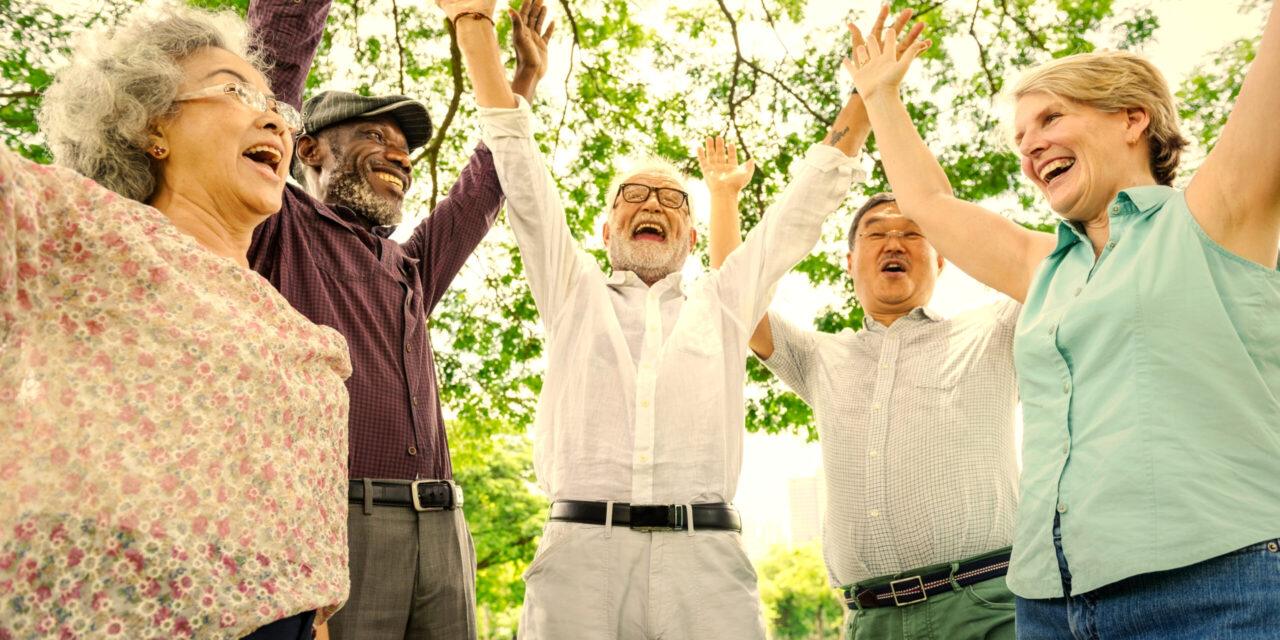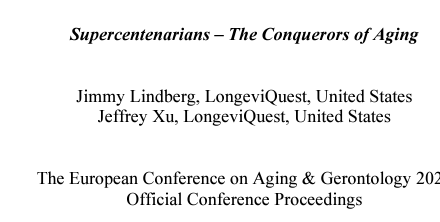Most people want to live long but never get “old.” Still, barring extreme breakthroughs in rejuvenation research over the coming years, we all must come to terms with our own mortality. We humans are not built to live forever (and in most cases not even 100 years). Given that humans have been around for some time now and have become acquainted with the concept of growing old, it is clear that there are certain perspectives on how to handle this phase of life.
In some cultures, growing old might be seen as a period of decline and increased dependency on others, while in others, achieving old age generates increased respect from younger generations and perceptions of wisdom. For supercentenarians especially, the surrounding culture is important. Supercentenarians tend to outlive their spouses by decades and may also survive their children, raising concerns about care provision when there are no living next of kin that can help with caregiving.
How care is provided varies throughout the world and is often influenced by the cultural perspective on aging. Societal perceptions on caregiving and who should provide care may also affect the burden felt by caregivers (Ng & Indran, 2021). East Asian culture, such as in Japan (with one of the highest average lifespans in the world), has a norm that older adults should be given deep respect and that it is a duty to look after one’s aging parents (Hansen & Tran, 2019). At the same time, the Japanese culture concept of Ikigai also encourages people to age actively and feel a sense of purpose for living, which may help provide mental and physical well-being (Okuzono et al., 2022).
This can be contrasted with many Western cultures, which often have a more individualistic approach to life (Barreto et al., 2021) and Western attitudes to aging could focus on the more negative aspects associated with old age. Ageism has been found more prevalent in Western countries (Nelson, 2009), which naturally impacts quality of care. In some countries, care for older adults is seen more as the responsibility of the state or municipality rather than relatives (Schulz et al., 2020).
In other places, family caregiving is deeply integrated in culture (Pharr et al., 2014; Schulz et al., 2020). In the Western context, Mediterranean countries like Greece and Italy (which has a blue zone in Sardinia), family ties are notably strong and older adults often reside together with their younger relatives. Multigenerational living arrangements could mean that older adults are able to receive care and remain a part of the family.
In many Latin American countries, family caregiving is commonplace (Herrera et al., 2013). The number of older adults is also increasing fast in this region, which creates challenges. Social network websites have been found to be one way for older adults to reduce isolation and help improve quality of life (Rondán-Cataluña et al., 2020). The question here is of course how we best allow for older adults to use digital services and make the process accessible.
What cultural views we have on aging may therefore have an impact on longevity. If a person feels that growing old will only result in becoming a burden on others, they may not be inclined to age well. If we instead integrate older people into society and allow them to be a part of both policy making and everyday living, it is possible that the psychological health of this group is benefitted. Reducing isolation and providing emotional support lowers the risk of depression in older adults and increases engagement.
We live in a large world with varied cultural practices towards aging. To best ensure that older adults are able to age well, we must devote greater efforts towards employing the best caregiving practices possible. We may feel young and invincible today, but what about in 40-50 years? To create the best possible future for both ourselves, our parents, and our children, we must ensure that there are sufficient resources for not only care of older adults, but also for promoting good health and activity throughout life.
References
Barreto, M., Victor, C., Hammond, C., Eccles, A., Richins, M. T., & Qualter, P. (2021). Loneliness around the world: Age, gender, and cultural differences in loneliness. Personality and individual differences, 169, 110066. https://doi.org/10.1016/j.paid.2020.110066
Hanssen, I., & Tran, P. T. M. (2019). The influence of individualistic and collectivistic morality on dementia care choices. Nursing ethics, 26(7-8), 2047–2057. https://doi.org/10.1177/0969733018791342
Herrera, A. P., George, R., Angel, J. L., Markides, K., & Torres-Gil, F. (2013). Variation in Older Americans Act caregiver service use, unmet hours of care, and independence among Hispanics, African Americans, and Whites. Home health care services quarterly, 32(1), 35–56. https://doi.org/10.1080/01621424.2012.755143
Nelson, T. D. (2009). Ageism. In Nelson T. D. (Ed.), Handbook of prejudice, stereotyping, and discrimination. New York, NY: Psychology Press,
Ng, R., & Indran, N. (2021). Societal perceptions of caregivers linked to culture across 20 countries: Evidence from a 10-billion-word database. PloS one, 16(7), e0251161. https://doi.org/10.1371/journal.pone.0251161
Okuzono, S. S., Shiba, K., Kim, E. S., Shirai, K., Kondo, N., Fujiwara, T., Kondo, K., Lomas, T., Trudel-Fitzgerald, C., Kawachi, I., & VanderWeele, T. J. (2022). Ikigai and subsequent health and wellbeing among Japanese older adults: Longitudinal outcome-wide analysis. The Lancet regional health. Western Pacific, 21, 100391. https://doi.org/10.1016/j.lanwpc.2022.100391
Pharr, J. R., Francis, C. D., Terry, C., & Clark, M. C. (2014). Culture, Caregiving, and Health: Exploring the Influence of Culture on Family Caregiver Experiences. International Scholarly Research Notices, 1, 689826. https://doi.org/10.1155/2014/689826
Rondán-Cataluña, F. J., Ramírez-Correa, P. E., Arenas-Gaitán, J., Ramírez-Santana, M., Grandón, E. E., & Alfaro-Pérez, J. (2020). Social Network Communications in Chilean Older Adults. International journal of environmental research and public health, 17(17), 6078. https://doi.org/10.3390/ijerph17176078
Schulz, R., Beach, S. R., Czaja, S. J., Martire, L. M., & Monin, J. K. (2020). Family Caregiving for Older Adults. Annual review of psychology, 71, 635–659. https://doi.org/10.1146/annurev-psych-010419-050754




